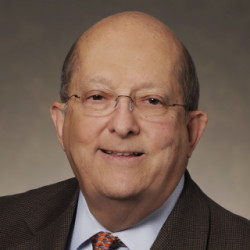ACC 2023/WCC was a well-attended international meeting in New Orleans, March 4-6, 2023. While the variety of educational tracts and the late-breaking clinical trials attracted much attention from participants and the press, the Report of the Presidential Task Force on Cardiovascular (CV) Workforce Challenges impressed me for having a lasting impact on cardiovascular practices and access to cardiovascular care for decades to come.
This report, presented by Thomas M. Maddox, MD, MSc, FACC centered around the “complex and multifactorial issues” facing the American College of Cardiology and its members. It was announced that the recommendations from this Task Force will be incorporated into the College’s Strategic Plan to be released next year.
Dr. Maddox identified the “supply” issues related to the pipeline from training to retirement. The ACC Board of Trustees will continue to explore the four major supply factors identified:
- Long Training and Certification Pathways
- Hyperspecialization among cardiologists
- The impact of unfavorable work-life balance
- Insufficient supply of physicians, APPs, Nurses, and allied health professionals
In addition, the report clearly outlined demands centered around the patient population and the clinical work environment:
- A growing patient population that has increasing numbers of older and sicker patients
- The increasing complexity related to managing cardiovascular conditions
- Increasing overall health care costs while CV revenues in real dollars are decreasing
- Reduced reimbursement within a flawed healthcare payment system
Possible solutions include the exploration of changes in training and certification pathways, evaluating incentives that promote general cardiology, maximizing well-being resources, promoting team-based care, creating new models and tools that optimize workflow, and becoming more active in payment reform and incentives alignment. The panel and audience discussion highlighted that clinicians of CV care need to work more closely with primary care to improve the quality and quantity of cardiovascular care across the spectrum of care delivery. A former member of the ACC Board of Trustees, Dr. Sam Wann, summarized it this way: “Cardiologists need to have the tools to help their primary care colleagues take better care of hypertension, lipids, and other risk factors in the primary care setting to prevent the need for increasing cardiovascular care services.”
In addition to Dr. Maddox, the panel included the outgoing ACC President, Dr. Edward A. Fry, the CEO of MedAxiom, Dr. Jerry G. Blackwell, the incoming Chair of the ACC Health Affairs Committee, Dr. William A. Van Decker, ACC’s Chief Innovation Officer, Dr. Ami B. Bhatt, and the Associate Director of the Cardiology Fellowship at Vanderbilt. Dr. Julie Damp. The panel highlighted a continuing exit of cardiologists each year that exceeds the workforce trained that same year. They explored several ideas about reducing the length of training as it currently exists. In addition, they felt that a careful examination of the entire educational process ensures that training programs provide the appropriate tools to their graduates as they emerge and assume roles in clinical care delivery.
Dr. Blackwell suggested that this environment was ripe for making practices and delivery systems “more efficient” in their workflow. He emphasized the need for team-based care and new payment models that reward cardiologists for improving quality and measured outcomes. The panel and audience participants stressed that we must have tools that provide care in a more precise manner to a wide variety of patient subgroups, that we must treat trainees and all CV team members in a manner that promotes good mental health, and that we find ways to maximize the contributions of all team members including cardiologists in the later years of their careers.
The panel felt strongly that the digital transformation of healthcare must not be allowed to constrain cardiovascular care clinicians. It must be the goal of the CV care team to use innovation and digital skills to unburden each of us to have more time for direct patient care.
As a participant in this session who spoke with many panelists after the session ended, I felt their deep commitment to developing meaningful solutions and actions within the ACC’s next Strategic Plan. Dr. Katie Berlacher, the Cardiology Fellowship Program Director at UPMC, discussed that numerous new cardiology fellowship programs have opened in the last several years without CMS funding. As ACC’s Chief Innovation Officer, Dr. Ami Bhatt assured me that she would explore with those new programs their sources of funding and make further recommendations regarding non-CMS funding for trainee education.
As a retired interventional cardiologist who feels strongly about improving the landscape of those following in my footsteps, I am encouraged after hearing this report and talking with those deeply committed to solving this crisis.
Dr. Sherman is a retired interventional cardiologist from Aurora, Colorado, who is a Past ACC Governor from Colorado, a Past Chair of the ACC Health Affairs Committee, and a Past Chair of the ACC HeartPAC. He served 12 years as ACC’s Alternate Member to the RUC (Relative Value Update Committee). He has no conflicts of interest to report.
Image by Vladimir Kononok / Getty







